Search
Did you mean: Tulum?
Search Results
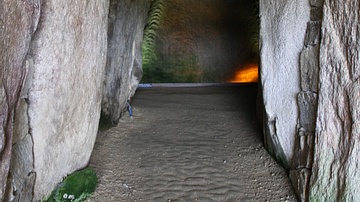
Image
Neolithic Tumulus Interior, Locmariaquer
The interior chamber of the stone burial mound known as the Table-des-Marchands (Table of Merchants) at the Neolithic site of Locmariaquer in north-west France. The tomb was constructed in the 5th millennium BCE and is so called because of...
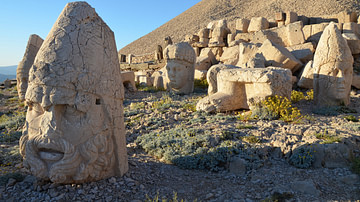
Article
Exploring Mount Nemrut - A Meeting Point Between East & West
Set within the Anti-Taurus mountain range in southeastern Turkey, beyond the borders of Adiyaman, is the archaeological wonder of Mount Nemrut. Forgotten for centuries, the spellbinding peak of Nemrut Dagi (its Turkish name) has since managed...
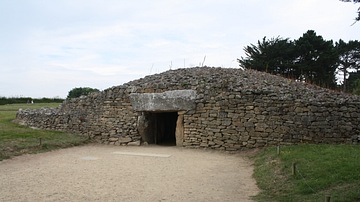
Definition
Locmariaquer
Locmariaquer is a Stone Age site in north-west France distinguished by its two large stone tombs and massive granite standing stone or menhir. The monumental structures, all built within metres of each other, were built in the 5th millennium...
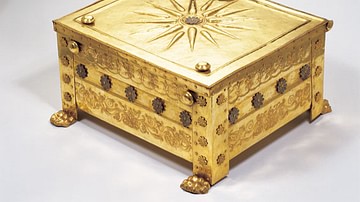
Article
The Royal Macedonian Tombs at Vergina
Excavations at Vergina in northern Greece in the late 1970s CE unearthed a cluster of tombs thought to be the burial site of Philip II (r. 359-336 BCE), the father of Alexander the Great (r. 336-323 BCE), with a wife interred in a vaulted...

Definition
Terracotta Army
The Terracotta Army refers to the thousands of life-size clay models of soldiers, horses, and chariots which were deposited around the grand mausoleum of Shi Huangdi, first emperor of China and founder of the Qin dynasty, located near Lishan...

Definition
Midas - The Mythical King with the Golden Touch
Midas was a mythical king of Phrygia in Asia Minor who was famous for his extraordinary ability to change anything he touched into gold. This gift was given to him by Dionysos in thanks for his hospitality to the wise satyr Silenus. Midas...

Definition
Tartessos
The Tartessian culture existed from the 9th to the 6th centuries BCE in the south-westernmost part of Spain. The landscape between the modern cities Huelva and Cádiz is defined nowadays by the lower course of the Guadalquivir, but in antiquity...

Definition
Phrygia
Phrygia was the name of an ancient Anatolian kingdom (12th-7th century BCE) and, following its demise, the term was then applied to the general geographical area it once covered in the western plateau of Asia Minor. With its capital at Gordium...
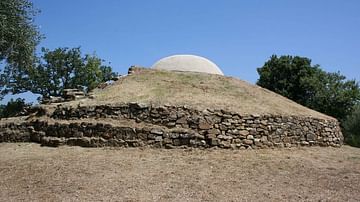
Definition
Vetulonia
Vetulonia (Etruscan: Vetluna), located in the hills near the western coast of central Italy, was an important Etruscan town from the 9th to 3rd century BCE. The site has many impressive tumulus tombs which were rich in artefacts illustrating...

Definition
Gordium
Gordium was the capital of ancient Phrygia, modern Yassihüyük. It is situated on the place where the ancient Royal road between Lydia and Assyria/Babylonia crosses the river Sangarius, which flows from central Anatolia to the Black Sea. Remains...